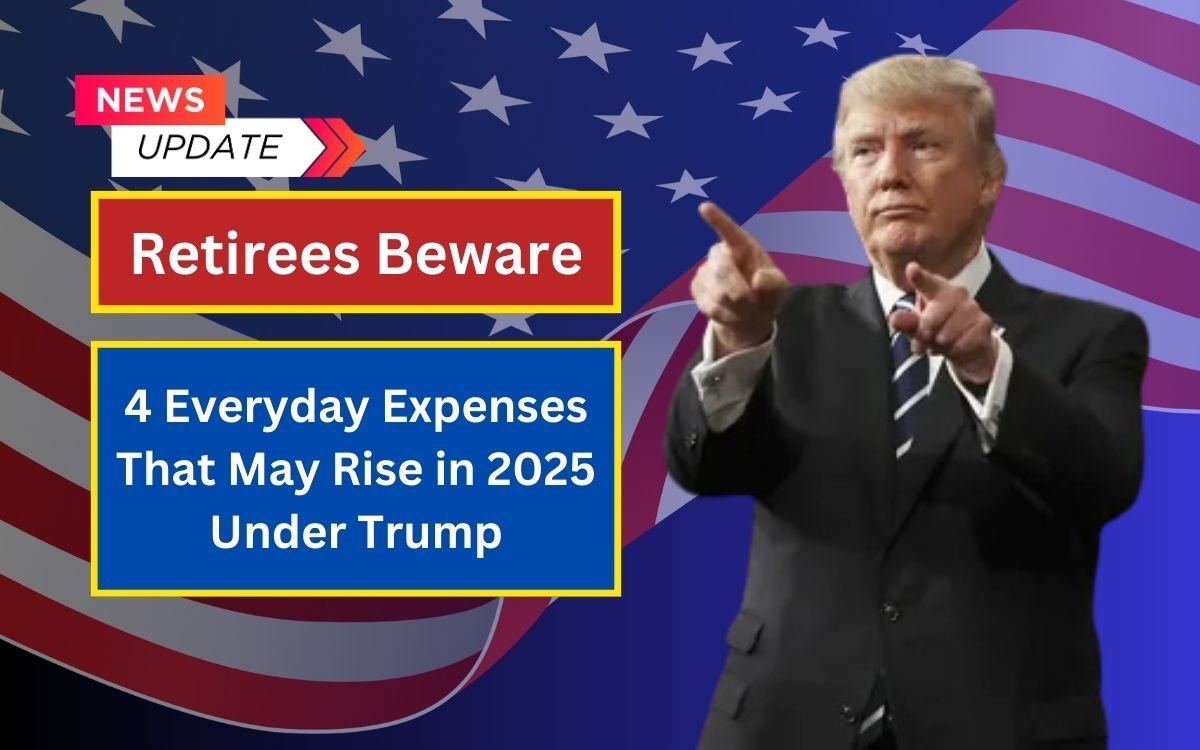Retirees take note! Prices on everyday essentials might rise sharply in 2025. Why? President-elect Donald Trump’s proposed tariff policies on imported goods could lead to significant cost increases. Let’s break it down.
On November 25, Trump shared on his Truth Social platform: “On January 20th, as one of my many first Executive Orders, I will sign all necessary documents to charge Mexico and Canada a 25% tariff on ALL products coming into the United States, and its ridiculous Open Borders.”
He also announced plans for a tariff hike targeting China, stating, “We will be charging China an additional 10% tariff, above any additional tariffs on all of their many products coming into the United States of America.”
These changes could hit retirees hard, as prices on some essentials may rise. Wondering what this means for your wallet? Let’s dive into four items likely to become more expensive—and how to prepare.
Table of Contents
1. Over the Counter Medications
If you depend on OTC medications for minor ailments be prepared for price hikes.
Per Sjofors founder of The Price Whisperer explains that half of the medications used in the US are imported. Even domestically made medications depend on imported raw materials. Tariffs on these imports could mean higher costs for OTC drugs and health insurance premiums. Planning ahead might help soften the blow.
2. Medical Supplies
Essential items like wheelchairs hearing aids and blood pressure monitors could also see price increases. Many of these products are manufactured or assembled in countries like China.
Jason Hishmeh co founder of Varyence warns that even small price hikes like $100 to $200 more for a hearing aid could burden retirees on fixed incomes. Delayed purchases or reduced healthcare access could become common as costs rise.
3. Electronics and Home Appliances
Everyday electronics from smartphones to home appliances are also on the list. Retirees who depend on these devices to stay connected or manage their health might feel the pinch.
Replacing or upgrading essential gadgets could become a financial strain making careful budgeting even more critical.
4. Clothing and Shoes
China is a major player in the global apparel market producing much of the clothing sold in the US Statista reports that China made 2.73 billion meters of fabric in September 2024 alone. If new tariffs hit expect higher prices on basics like clothes and shoes.
Joseph Camberato CEO at nationalbusinesscapital.com points out that retirees on fixed incomes could struggle with these cost increases and potentially cutting back on other essentials.
How Retirees Can Prepare
Rising prices may seem daunting, but you can take steps to stay ahead:
- Cut non essential spending: Prioritize your purchases and focus on needs over wants.
- Shop smart: Look for deals and stock up on essentials before prices rise.
- Stay informed: Follow updates on tariff policies and financial advice tailored to retirees.
For more insights, check out related updates like Trump’s Creation of the External Revenue Service to Oversee Tariffs and Foreign Revenue to better understand how these changes might impact your budget.
What Could Cost More in 2025
| Item | Reason for Price Increase | Impact on Retirees |
| OTC Medications | Tariffs on imported raw materials | Higher drug costs and insurance |
| Medical Supplies | Tariffs on imported components | Delays in purchases or upgrades |
| Electronics & Appliances | Increased costs of imports | Limited access to essential devices |
| Clothing & Shoes | Tariffs on Chinese-made apparel | Strained budgets for basic needs |
FAQs
Will all retirees be affected by the tariff changes?
Yes, retirees who depend on imported goods or products made with imported materials will likely feel the impact, especially those on fixed incomes.
How can retirees prepare for rising costs?
Budget carefully, stock up on essentials when possible, and stay informed about policy changes to make smart financial decisions.
Are there any specific policies to watch for?
Yes, stay updated on tariff implementations and other economic measures under the Trump administration. Knowing what’s coming will help you plan ahead.
Final Thoughts
The proposed tariff changes could lead to rising costs for everyday items, creating new challenges for retirees. But with careful planning and smart budgeting, you can weather these changes and protect your financial health.
